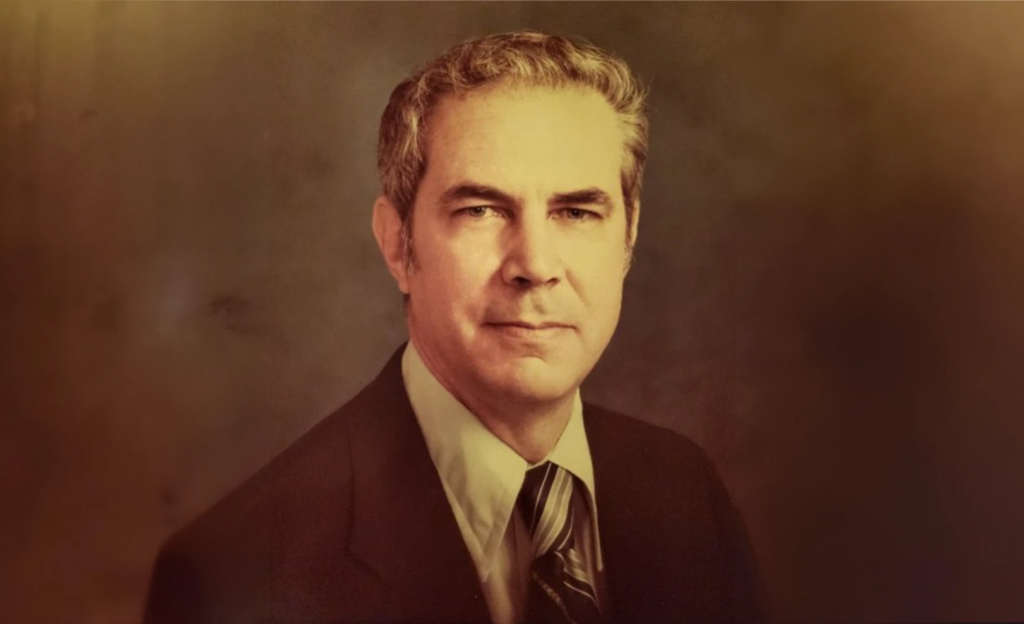Robert E. Tranquada, USC Price School faculty member, dies at 92

By Scot Macdonald
Robert E. Tranquada, MD, a long-time member of the USC faculty, passed away on Dec. 4 at the age of 92. He was a diabetes researcher turned public health advocate who was instrumental in increasing access to health care for underserved communities across Los Angeles County.
He joined the USC Sol Price School of Public Policy in 1992 and served as chair of USC’s health administration program until he retired in 1997. Prior to joining the USC Price School, he was dean of the Keck School of Medicine of USC from 1986 to 1991.
“Bob Tranquada joined the USC Price School as the first holder of the National Medical Enterprise Chair in Medicine and Public Policy—the same chair that attracted me to USC,” said Dana Goldman, dean and the C. Erwin and Ione L. Piper chair of the USC Price School. “He brought his rich experience in medicine, community health and public policy to the USC Price School, and with his wise counsel enriched our community and led the master of health administration program until his retirement.”
Early in his long career at USC, Dr. Tranquada led the creation of the Department of Community Medicine. As associate dean of the Keck School, he was the architect of consolidating various departments into the L.A. Department of Health Services and played a key role in developing the health administration program at USC. As a nationally recognized leader, he chaired the American Association of Medical College’s Council of Deans.
A Long and Distinguished Career
Born in Los Angeles, the son of a Los Angeles Unified School District administrator and a homemaker, Tranquada grew up in Pico Rivera. After graduating from Pomona College and Stanford Medical School, he joined the faculty of USC Medical School in 1959. As a diabetes specialist, he treated actor Spencer Tracy and served as an expert witness in the trial of serial killer William Archerd, the first person in the United States to be convicted of using insulin as a murder weapon.
His career took a dramatic turn in 1965. After the National Guard medical battalion he commanded was activated during the Watts Uprising, he was asked by then-USC Medical School Dean Roger Egeberg to head a new department of community and preventive medicine whose first task would be to organize a public health clinic in Watts.
His experience launching and becoming the first director of the clinic, the South Central Multipurpose Health Services Center in 1965 (now the Watts Healthcare Corporation), led to a 40-year career in public health. He was an effective advocate for increasing the number of women and people of color in medicine.
In 1986, he became dean of USC Medical School with a mandate to develop a new private teaching hospital — today’s Keck Hospital of USC. It was while serving as dean that he was appointed to the Independent Commission on the L.A. Police Department, better known as the Christopher Commission, formed in the wake of the Rodney King beating. He headed the Los Angeles County Taskforce on Access to Healthcare in the aftermath of the 1992 civil unrest, which led to the creation of Community Health Councils, the non-profit organization that works to promote health and wellness in under-resourced communities.
After stepping down as dean in 1991, he joined the USC Sol Price School of Public Policy, serving as chair of USC’s health administration program until his retirement in 1997.
Survivors include Janet, his wife of 71 years; children John (Lisa), Jim (Kristin) and Kate; grandchildren Matt, Jessica and Alex Tranquada; and his sister, Carolyn Prestwich.
The family asks that memorial gifts be made to the Keck School’s Department of Population and Public Health Sciences (PPHS). To support the PPHS program, please click here.